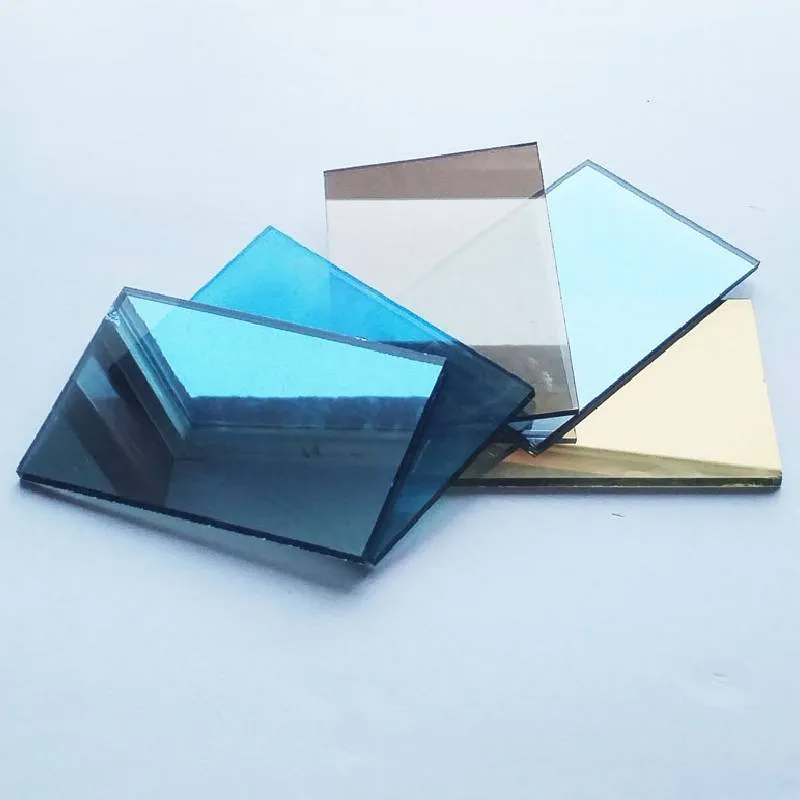Float glass has become a staple in the construction industry due to its versatile applications and technical properties. As a form of flat glass created by the float process, it offers a smooth, uniform surface that is ideal for various building requirements. Produced by floating molten glass on top of molten tin, this manufacturing process results in a clear, distortion-free sheet of glass that possesses excellent optical quality.
One of the most significant benefits of float glass in construction is its ability to provide natural light while ensuring durability. Architects and builders often incorporate large glass windows and facades into their designs, creating bright, airy spaces that enhance the aesthetic appeal and functionality of buildings. With advancements in manufacturing technology, float glass can now also be treated or coated to improve energy efficiency, making it an environmentally friendly choice for modern construction projects.
Another crucial advantage of float glass is its adaptability. It can be cut and shaped to fit a variety of applications, from commercial buildings to residential homes. Additionally, float glass can be laminated or tempered to improve its strength and safety characteristics, making it suitable for high-rise buildings, skylights, and even shower doors. These modifications increase the glass's resistance to impact and thermal shock, which is vital in today’s applications where safety and security are paramount.
float glass used in construction
The aesthetic appeal of float glass cannot be understated. Its clarity allows for unobstructed views and seamless transitions between indoor and outdoor spaces. Moreover, it can be manufactured in different tints and finishes, allowing designers to achieve specific visual effects and cater to personal tastes. This flexibility makes float glass an excellent option for enhancing the visual appeal of a structure while meeting practical requirements.
Furthermore, float glass plays a pivotal role in sustainable building initiatives. With the growing emphasis on energy efficiency in construction, float glass can be combined with insulating materials to minimize heat loss and gain. This results in buildings that require less energy for heating and cooling, contributing to lower carbon footprints.
In conclusion, float glass is an indispensable material in contemporary construction, offering a blend of aesthetics, functionality, and energy efficiency. Its versatility, safety features, and sustainable qualities make it a preferred choice for architects and builders looking to create modern, environmentally conscious structures. As technology continues to evolve, the role of float glass in construction is likely to expand, further enhancing the way we design and inhabit our spaces.
 Afrikaans
Afrikaans  Albanian
Albanian  Amharic
Amharic  Arabic
Arabic  Armenian
Armenian  Azerbaijani
Azerbaijani  Basque
Basque  Belarusian
Belarusian  Bengali
Bengali  Bosnian
Bosnian  Bulgarian
Bulgarian  Catalan
Catalan  Cebuano
Cebuano  Corsican
Corsican  Croatian
Croatian  Czech
Czech  Danish
Danish  Dutch
Dutch  English
English  Esperanto
Esperanto  Estonian
Estonian  Finnish
Finnish  French
French  Frisian
Frisian  Galician
Galician  Georgian
Georgian  German
German  Greek
Greek  Gujarati
Gujarati  Haitian Creole
Haitian Creole  hausa
hausa  hawaiian
hawaiian  Hebrew
Hebrew  Hindi
Hindi  Miao
Miao  Hungarian
Hungarian  Icelandic
Icelandic  igbo
igbo  Indonesian
Indonesian  irish
irish  Italian
Italian  Japanese
Japanese  Javanese
Javanese  Kannada
Kannada  kazakh
kazakh  Khmer
Khmer  Rwandese
Rwandese  Korean
Korean  Kurdish
Kurdish  Kyrgyz
Kyrgyz  Lao
Lao  Latin
Latin  Latvian
Latvian  Lithuanian
Lithuanian  Luxembourgish
Luxembourgish  Macedonian
Macedonian  Malgashi
Malgashi  Malay
Malay  Malayalam
Malayalam  Maltese
Maltese  Maori
Maori  Marathi
Marathi  Mongolian
Mongolian  Myanmar
Myanmar  Nepali
Nepali  Norwegian
Norwegian  Norwegian
Norwegian  Occitan
Occitan  Pashto
Pashto  Persian
Persian  Polish
Polish  Portuguese
Portuguese  Punjabi
Punjabi  Romanian
Romanian  Russian
Russian  Samoan
Samoan  Scottish Gaelic
Scottish Gaelic  Serbian
Serbian  Sesotho
Sesotho  Shona
Shona  Sindhi
Sindhi  Sinhala
Sinhala  Slovak
Slovak  Slovenian
Slovenian  Somali
Somali  Spanish
Spanish  Sundanese
Sundanese  Swahili
Swahili  Swedish
Swedish  Tagalog
Tagalog  Tajik
Tajik  Tamil
Tamil  Tatar
Tatar  Telugu
Telugu  Thai
Thai  Turkish
Turkish  Turkmen
Turkmen  Ukrainian
Ukrainian  Urdu
Urdu  Uighur
Uighur  Uzbek
Uzbek  Vietnamese
Vietnamese  Welsh
Welsh  Bantu
Bantu  Yiddish
Yiddish  Yoruba
Yoruba  Zulu
Zulu 

